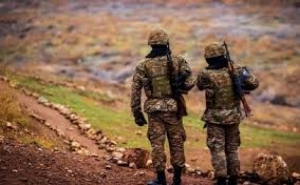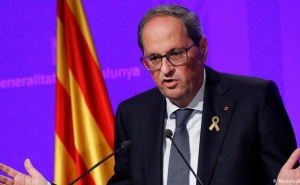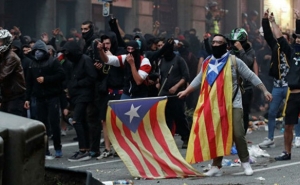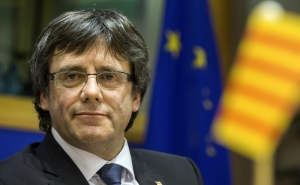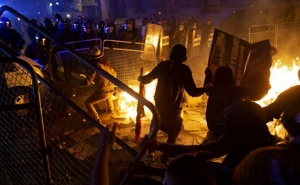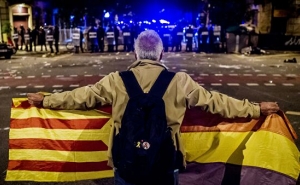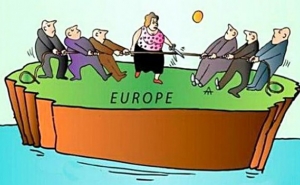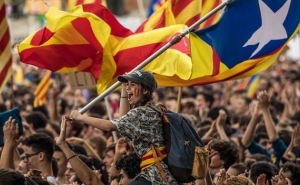 Lessons and Results of the Catalan Referendum
Lessons and Results of the Catalan Referendum
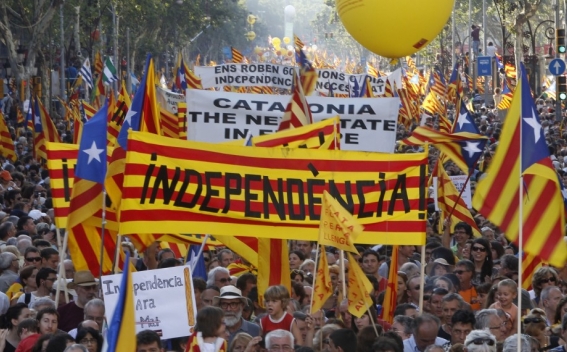
On October 1, the people in Catalonia once more voiced the will to become independent from Spain, participating in the independence referendum.
Despite all the efforts of Madrid to overturn the referendum, the ban of the Constitutional court, the use of the force by the police, more than half of the Catalan people participated in the referendum and 90 percent of the participants said “Yes” to independence.
The struggle for independence of Catalonia contains several important components.
National: the Catalans are different from the Spanish by their ethnicity and struggle for the preservation of their language and identity, while the policy of Madrid is considered by them as the intention “to make Catalonia more Spanish.” Thus, this struggle, first of all, is a struggle for preservation of identity.
Financial: Catalonia is one of the most economically developed regions of Spain and has the largest tourist flows. The economic calculations show that currently Catalonia invests more in the Spanish budget than receives from it. It became even obvious after the Spanish economic crisis. For example, 9,5%- of the state budget was allocated to Catalonia in 2015 as compared to that of 16% in 2003.
Political: After long negotiations between Madrid and Barcelona, in 2006 an agreement was signed, according to which the Catalan autonomy was considerable widened: Barcelona got comparably considerable financial, administrative freedoms, while the Catalans were recognized as a “nation.” However, in 2010, based on the decision of the constitutional court, some points of the agreement were annulled, which resulted in this wave for independence.
Today’s tough policy employed by Madrid makes the situation even tense. Before the referendum, the results of the polls showed that only 41% of the population is for the independence, while 41% against. However the stance of Madrid and the steps initiated on the eve of the referendum (attempt to prevent the realization of the referendum, the police forces sent for Madrid, the arrests of the referendum organizers and so on) changed the public mood. Besides, the pro-Spanish political forces, that gained 40% votes in the previous parliamentary elections, boycotted the referendum, thus increasing the chances of the “Yes” vote. Consequently, more than half of the population, eligible to vote, participated in the referendum and 90% of them voted for independence.
The police actions on the eve and during it cannot pass without consequences: there are more than 700 wounded people among the referendum participants. The EU will be forced to react and criticize such a demonstration of violence against the wish of the people to express their will in a democratic way. It does not mean that the EU will support the independence of Catalonia. Trying to avoid the domino effect and additional problems with Madrid, Brussels aims at not interfering in the issue. Moreover, the EU will indirectly try to prevent the dissemination of separatism (according to the EU policy, the EU member separatist units also quit the EU). However, not criticizing the demonstration of violence will mean the denial of own principles and values.
Now the parliament of Catalonia should decide on declaring the independence. However, both sides, despite the decisive rhetoric and mutual accusations, consider the possibility of negotiation. Prime Minister of Spain, Mariano Rajoy, declared that they “leave a door open” and are ready to negotiate, however only in the framework of the law. President of Catalonia, Carles Puigdemont, in his turn declared that the “joint declaration on the independence is not on the table” and he is ready to negotiate. Logically, the next step will be negotiations, but the violence demonstrated by Madrid and tension in the public moods, as a result of it, raised the bar for Catalan concession.
One can also draw certain concussions for other issues relating to the self-determination.
The demonstration of violence by Madrid and the change of the public moods, as a result of it, once more proved that such problems should be resolved exclusively in a peaceful way, through dialogue.
Besides, the attention of the international community was once more drawn to the issue of self-determination. The example of Catalonia shows that the issue of self-determination and preservation of identity is always actual and important. If in the democratic EU member state Spain the issue of t independence for the preservation of identity is raised. It is more than natural that such an issue is to the point and actual in developing countries, especially in cases, when the self-determination is a security issue.
-
 17:08
17:08The regular session of the Anti-corruption Policy Council takes place in Jermuk
-
 15:05
15:05The Prime Minister sends congratulatory messages to the supreme leader of Iran and the President of Iran
-
 11:11
11:11Armenia sends earthquake aid to Turkey
-
 10:43
10:43Commemoration of the Pontiff St. Sahak Partev
-
 09:16
09:16Some roads are closed and difficult to pass in Armenia
-
 19:55
19:55Phone conversation of the Foreign Minister of Armenia with the U.S. Assistant Secretary of State for European and Eurasian Affairs
-
 18:30
18:30Prime Minister Pashinyan and President Khachaturyan meet
-
 18:20
18:20Ararat Mirzoyan with Co-Chairman of the OSCE Minsk Group of France Brice Roquefeuil
-
 17:01
17:01Humans could land on Mars within 10 years, Musk predicts
-
 16:45
16:45France, US urge 'immediate' end to Nagorno Karabakh blockade
-
 16:01
16:01Blockaded Nagorno Karabakh launches fundraiser to support quake-hit Syria
-
 15:59
15:59Earthquake death toll in Turkey rises to 18,342
-
 15:43
15:43Ararat Mirzoyan Held a Telephone Conversation with Sergey Lavrov
-
 15:06
15:06French president rules out fighter jet supplies to Ukraine in near future
-
 14:47
14:475 Day Weather Forecast in Armenia
-
 14:44
14:44President Vahagn Khachaturyan wrote a note in the book of condolences opened in the Embassy of Syria in Armenia
-
 14:20
14:20Azerbaijan’s provocations impede establishment of peace and stability – Armenian FM tells Russian Co-Chair of OSCE MG
-
 12:57
12:57France representation to OSCE: Paris calls on Azerbaijan to restore freedom of movement through Lachin corridor
-
 11:40
11:40Command of Kosovo forces highly appreciated preparation of Armenian peacekeepers
-
 10:16
10:16The United States withdrew from sanctions against Syria for six months the provision of assistance after the earthquake
day
week
month
Humidity: %
Wind: km/h


